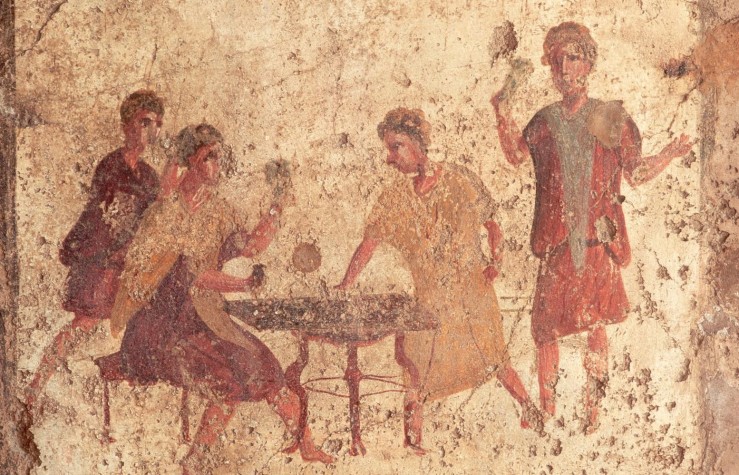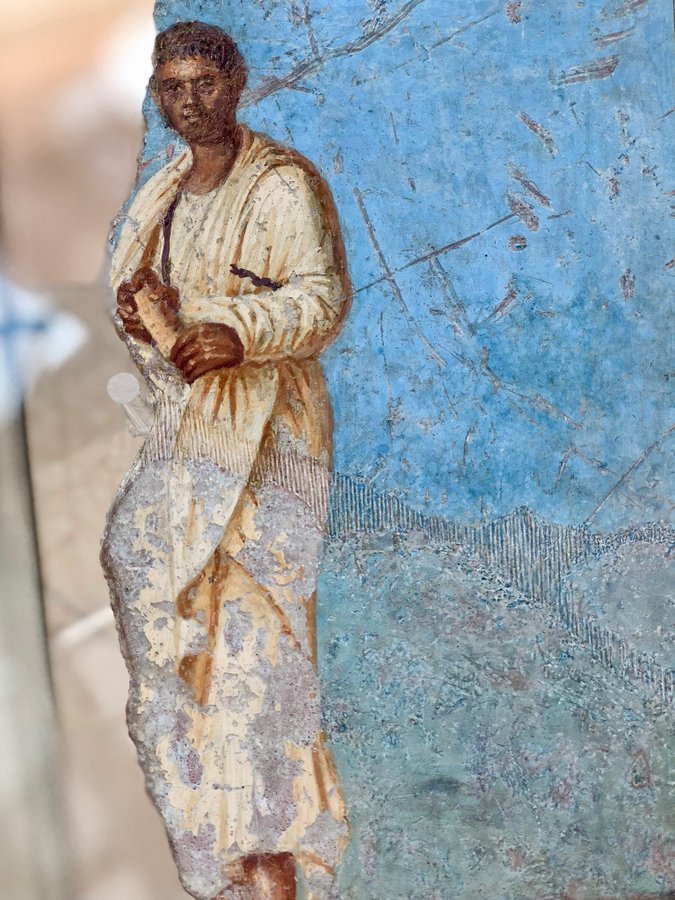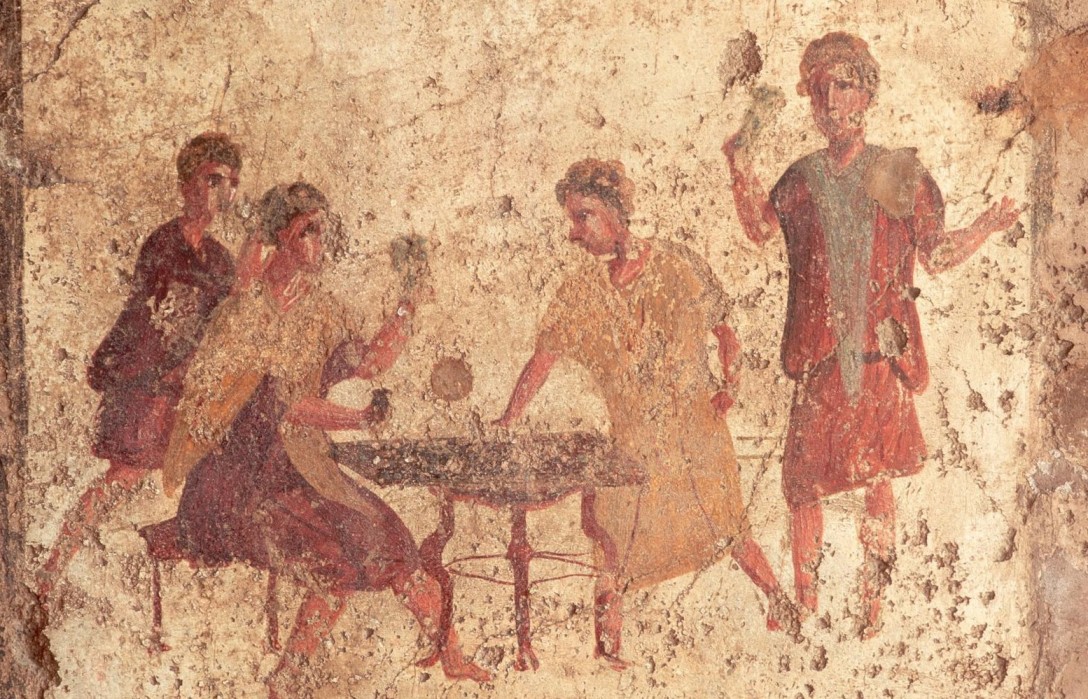
Main Conference Schedule, Abstracts and Handouts
This page is a work in progress as participants and speakers submit information.
—
Everyone attending will have an opportunity to share ideas and interact with other participants (if they so desire).
Valentina Arena is Reader in Roman History at University College London. Her work focuses mainly on the history of ancient ideas and ancient political thought as well as the wider intellectual landscape of the Roman Republic. She is the author of Libertas and the Practice of Politics in the late Roman Republic (2012); the editor of Liberty: an Ancient Idea for the Contemporary World? Ancient Liberties and Modern Perspectives (2018), and co-editor of Varronian Moments (2017) and Reconstructing the Republic: Varro and Imperial Authors (2018). She is currently embarking in a new project Ordering, Constructing, Empowering: Fragments of the Roman Republican Antiquarians (ERC, 2020-5), which will include an edition of these fragments.
Jocelin Chan is an MPhil student at the University of Sydney exploring publics, public spaces, and civic identity in the early Republic. Her BA (Hons) thesis focused on the division within the cavalry class from the Gracchi to Sulla. Her research interests revolve around domestic politics and institutions, citizenship, imperialism, and public space in the Roman Republic.
Panayiotis A. Christoforou, Stipendiary Lecturer in Ancient History, University College, University of Oxford. His research interests centre on the reception of the Roman emperor’s power and position, and broadly the political, social and cultural history of the Roman empire.
Tim Elliott is a postgraduate student at the University of Glasgow. His main research interest relates to how hermeneutics and reception can help us understand politics in the late Roman Republic.
M. Cristina de la Escosura is a post-doctoral researcher in Ancient History at the University of Zaragoza with the Research Group HIBERUS. Her research focuses on Epigraphy, Onomastics, Citizenship, and Administration in the Late Republic. She is the Director of the Fasti Congressuum project. Further details are available on her university webpage.
Judy E. Gaughan is an associate professor of History at Colorado State University-Pueblo. She teaches primarily Roman Republic, Roman Empire, Roman Law, Greek History, Hellenistic History, Topics in Empires, and World Civ to 1500. Her book Murder Was Not a Crime: Homicide and Power in the Roman Republic was published by the University of Texas Press in 2010. She is currently working on Foreigners in Roman Criminal Courts and she is writing an un-Roman book tentatively titled, Surely the World Moves: Carrie Clyde Holly, an American First. Further information is available on her website.
Eliza Gettel is an Assistant Professor of History at Villanova University. Her research focuses on how koina of the Greek mainland survived and transformed within the Roman Empire. She is therefore intrigued by symmetries and asymmetries between Greek and Roman political institutions and terminology. Faculty webpage and Academia.edu.
Julian Gieseke is a PhD Student at the University of Bielefeld (Germany). He is currently writing on The Greek Ethnography of the North in the Roman age (ca. 150 BC-25 AD), mainly looking at the works of Polybius, Posidonius and Strabo. The research is guided by the following questions: How did these Greek authors compare the peoples of the European Northwest (Celts, (Celt)iberians, Germani etc.) with each other, and especially with Greek, but also Roman styles of life, culture and politics? What role did they attribute to the influence of climate and topography on the character of the ‘Barbarians’? And finally, what influence did Roman imperialism have on their works? Further information can be found on his university webpage.
Wolfgang Havener is “Akademischer Rat auf Zeit” (a post roughly equivalent to a non-tenured assistant professorship) at the Seminar for Ancient History & Epigraphy, University of Heidelberg. His research focuses on the political and cultural history of Late Republican and Early Imperial Rome. He is the author of Imperator Augustus. Die diskursive Konstituierung der militärischen persona des ersten römischen princeps (2016) which addresses the question how Augustus and the members of the senatorial elite shaped the princeps’ role as military leader. In addition he has co-edited (with I. Gildenhard, U. Gotter and L. Hodgson) the volume Augustus and the Destruction of History. The Politics of the Past in Early Imperial Rome (2019) and is currently preparing another edited volume on “The Culture of Civil War” in Late Republican Rome. More information is available on his faculty website and on academia.edu.
Tom Hillard is an Honorary Associate Professor with the Department of Ancient History, Macquarie University, New South Wales, Australia. His interests are broad (including ancient harbour studies), but his chief research interests are in Roman social history and the politics of the Roman Republic.
Evan Jewell is Visiting Assistant Professor of Classics at Georgetown University. His research focuses on the history of youth in the Roman empire, as well as, among other things, oratory and politics in the Roman Republic. Further information is available on his personal website.
Brad Jordan is a postdoctoral scholar at the University of Cologne. His current research analyses the interface between Roman institutions and political cultures in the eastern Mediterranean during the transition from Republic to Principate. His DPhil in Ancient History at the University of Oxford investigated the development of Roman provincial administration in western Asia Minor. Prior to this he completed his Master of Arts and Bachelor of Arts (Honours) at the University of Melbourne.
Alina Kozlovski is currently a Curatorial Assistant at the Santa Barbara Museum of Art and a Research Affiliate at the University of Sydney. She completed her PhD at the University of Cambridge which explored how the Romans of the late republican and early imperial period curated their past using material remains, focusing on themes of ruins and architectural reconstruction. More recently she completed a postdoc at the British School at Rome where she researched the history of how stories of regal Rome have been presented in museum spaces. Find her on Twitter, @AlinaKozlovski.
Christina Shuttleworth Kraus is the Thomas A. Thacher Professor of Latin, Yale University. Further information is available on her faculty webpage.
Antonio Lopez Garcia (PhD, History and Archaeology of the Ancient World, 2014) is a postdoctoral researcher of ‘Law, Governance and Space’ (SpaceLaw), a project funded by the European Research Council based in the Centre for European Studies at the University of Helsinki. He teaches Roman Topography and Roman Administration at the Faculty of Humanities. He is currently researching the physical spaces of Roman administration from the republican period to the Late Antiquity in the Urbs. His first book Los Auditoria de Adriano y el Athenaeum de Roma based on his award-winning doctoral thesis about the halls discovered around the Forum of Trajan in Rome was published in 2015 in Florence. Recently, he has been working on the spaces for meetings and tribunals in Rome and has discovered the remains of a Roman road in Guadix (Granada, Spain). Further information is available on his faculty webpage.
Dominic Machado is an Assistant Professor of Classics at the College of the Holy Cross. His research focuses broadly on the history and historiography of the Roman Republic, with a particular emphasis on the realities and perceptions of collective resistance and dissent in the period. He is currently working on a monograph on this phenomenon as it pertains to the Middle Republican army entitled, Beyond Discipline: Community and Collective Action in the Armies of the Middle Republic.
Dominik Maschek, Associate Professor of Roman Archaeology and Art, University of Oxford. A trained Classical archaeologist, his research covers a wide array of topics from Archaic Greece to the Roman Empire, with a special focus on late Republican architecture and material culture in Rome and central Italy. His latest book is Die römischen Bürgerkriege: Archäologie und Geschichte einer Krisenzeit (Philipp von Zabern 2018). Further information is available on his faculty webpage.
Lisa Marie Mignone is a specialist in the residential and sacred topography of Republican Rome. She is the author of The Republican Aventine and Rome’s Social Order (2016) and co-editor of Studi e Scavi sull’Aventino 2003-2015 (2018). Her current book, Rome’s Juno: Religious Imperialism and Self-Preservation (under contract with University of Michigan Press) examines spiritual mobility, interconnectivity, and disruption across four rival communities: Rome, Punic Carthage, Etruscan Veii, and Latin Lanuvium. She is also a co-editor of The Roman Republic in the Long Fourth Century, currently under review with Cambridge University Press. For more information, see her academia.edu webpage.
Kit Morrell joined the University of Melbourne in June 2019 as holder of an ARC Discovery Early Career Researcher Award. Her DECRA project, ‘Reforming the Roman republic’, examines the idea and practice of reform in the late Roman republic, with a special interest in attempts at systemic reform, long-term reform programmes or policies, and non-legislative means of pursuing change. Further information is available on her university webpage.
Carlos Noreña (PhD, Ancient History, University of Pennsylvania, 2001) is Chair of Ancient History and Mediterranean Archaeology and Associate Professor of History at the University of California, Berkeley. He is the author of Imperial Ideals in the Roman West (Cambridge University Press, 2011), editor of A Cultural History of Western Empires: Antiquity (Bloomsbury Academic UK, 2018), and co-editor of From Document to History: Epigraphic Insights into the Graeco-Roman World (Brill, 2019) and The Emperor and Rome: Space, Representation, and Ritual (Cambridge University Press, 2010). Among his current projects is a study of law, empire, and political culture in the late Republic. Further information is available on his faculty webpage.
Eric Orlin is Professor of Classics and Ancient Mediterranean Studies at the University of Puget Sound. He earned his BA from Yale and his PhD from the Group in Ancient History and Mediterranean Archaeology at the University of California, Berkeley. His interests lie at the intersection of Roman Republican history and Roman religion. He is the author of Temples, Religion and Politics in the Roman Republic (1997) and Foreign Cults in Rome: Creating a Roman Empire (2010), and served as general editor for the Routledge Encyclopedia of Ancient Mediterranean Religions (2014), along with several articles on Roman religion and identity. He is also a co-founder of the Society for Ancient Mediterranean Religions.
Nandini Pandey is an Associate Professor of Classics at the University of Wisconsin-Madison. She is the author of The Poetics of Power in Augustan Rome (Cambridge 2018) and is now working on a second book on Roman diversity. She also writes regularly for Eidolon, most lately on classics in a time of coronavirus. Further information is available on her faculty webpage.
Paula Rondon-Burgos is a Latin teacher at an independent all-girls school in Virginia. Her research interests include Cicero, Roman Republican history and culture, and language pedagogy.
Amy Russell is Associate Professor of Classics and Ancient History at Durham University. She is the author of The Politics of Public Space in Republican Rome, and currently working on the building activity of the imperial Senate and a new project on the populus Romanus. Further information is available on her faculty webpage.
Josephine Crawley Quinn, Professor of Ancient History, University of Oxford, and Co-Director Oxford Centre for Phoenician and Punic Studies, and Co-Director Tunisian-British Excavations at Utica, Martin Frederiksen Fellow and Tutor in Ancient History, Worcester College. Further information is available on her website.
David Rafferty is a political and institutional historian of the late Roman Republic. His first monograph, Provincial Allocations in Rome 123-52 BCE, was published in 2019. He lives in Adelaide, Australia. Further information is available on his academia.edu page.
Cristina Rosillo-López is Senior Lecturer in Ancient History, University Pablo de Olavide, Seville. Her research focuses on politics and political culture of the Late Roman Republic, including corruption, rumours, gossip, public opinion and popular political culture. She has also worked on real estate in the Roman world. She is the author of La corruption à la fin de la République romaine (IIe-Ier av. JC): aspects politiques et financiers (Historia Einzelschriften 2010) and Public Opinion and Politics in the Late Roman Republic (CUP, 2017). She is the PI of the Research Network Libera res publica and co-editor of the series Libera res publica: monographs on the Roman Republic. Further details on her faculty homepage or in Academia.edu.
Catherine Steel is Professor of Classics at the University of Glasgow. Her research focuses on the political history of the late Republic, with particular attention to the role of public speech; she has published widely on Cicero and is currently editing the fragments of Republican Roman oratory. Further information, including a full list of recent publications is available on her faculty webpage.
Michael J. Taylor is an Assistant Professor of History at the University at Albany, SUNY. His book, Soldiers and Silver: Mobilizing Resources in the Age of Roman Conquest is forthcoming from the University of Texas Press. He current research focuses on warfare, imperialism and politics in the Middle Republican period.
Olivia Thompson is a DPhil candidate at Balliol College, Oxford. Her thesis focuses on the rhetorical use of the relationship between running a household and running the res publica in the mid- to late Republic and early Augustan era. She is interested more generally in republican and imperial history, comedy, translations and editing, reception, and the history of scholarship, particularly the impact of stylistic and interpretative norms on access to classical studies. She has a part-time job at an antiquarian bookseller and led a research project at Oxford which set up a workshop programme, ‘Bodleian Student Editions’, an interdisciplinary introduction to manuscripts and metadata with an output of published transcriptions, now in its fourth year.
João Paulo Simões Valério is a doctoral student in Ancient History at the University of Lisbon. His thesis focuses on Cicero’s Philippics. Further information is available on his university webpage.
Henriette van der Blom, Senior Lecturer in Ancient History, University of Birmingham. Further information is available on her faculty webpage.
Johan Vekselius is an ancient historian and postdoctoral scholar at Stockholm University. His research interests concerns emotions in Roman political culture and the use of contemporary political theory to better understand politics in the ancient world.
Gavin Weaire teaches in the Classics Department at Hillsdale College. He was born in the United States, but grew up in Scotland and (mostly) in Ireland. Early in his career, he thought of himself as a Latinist who intended to work on Roman oratory and historiography, but one thing led to another, and he turned out to be a Hellenist who works on later Greek prose. But intellectually, he still spends most of his time in the first century B.C. He has been responsible for a modest number of articles, mostly on Dionysius of Halicarnassus (yes, he is that interesting), and also on Plutarch and Polybius. He is currently working on a book on Sallust.
Kimberley Webb (she/her) is a DPhil candidate at the University of Oxford writing on ‘Collegiality and Religious Authority in the Roman Republic’. Her research explores collective action and shared authority in the public sphere of the Roman Republic, both as ideas and practice. Specifically, it addresses the prevalence and nature of collegiality as an organisational structure across Roman political and religious institutions and aims to develop a new approach to cooperation, consensus, and power-sharing in the fabric of Roman public life. She has previously studied at the University of Melbourne and the University of Western Australia.
Lewis Webb is a Postdoctoral Researcher in Classical Archaeology and Ancient History at the University of Gothenburg in Sweden. His postdoctoral project is entitled “(In)visible women: Female spatial practices and visibility in urban spaces in Republican Rome (509–27 BCE)” and is funded by the Swedish Research Council (2020–2022). His research interests include gender, law, religion, and space in Republican Rome. With Irene Selsvold, he has just published an edited volume in the TRAC Themes in Roman Archaeology series entitled Beyond the Romans: Posthuman Perspectives in Roman Archaeology (Oxbow, 2020). Further information is available on his website; and find him on Twitter, @lewismarkwebb.
John Weisweiler, University Lecturer in Classics, University of Cambridge, Fellow and Director of Studies at St John’s College. Further information is available on his faculty webpage.
Kathryn Welch is Associate Professor in the Department of Classics and Ancient History at the University of Sydney in 1991. Her main teaching and research interests are in Roman republican and early imperial history and historiography. Her big achievement last year was the publication of The Alternative Augustan Age (Oxford) which she co-edited with Kit Morrell and Josiah Osgood. She is still friends with both. She is currently trying to finish a biography of Marcus Antonius for Routledge. Further information is available on her faculty webpage.
Liv Mariah Yarrow, Associate Professor of Classics, Brooklyn College and the Graduate Center of the City University of New York. She is the author of Historiography at the End of the Republic: Provincial Perspectives on Roman Rule (OUP 2006) and The Roman Republic to 49 BCE: Using Coins as Sources (CUP forthcoming), as well as other articles and chapters on republican historiography and numismatics. Copies of most publications can be found on this website. Her first name is pronounced ‘Leev’.
Further Registered Participants:
Oscar Hale, Emily Chambers, Eoghan Finn, Matt Simonton, Evan Jewell, Jake Slaytor, Hamish Cameron, Carlos Enríquez de Salamanca, Eliza Gettel, Nandini Pandey, Madeleine St. Marie, Georgy Kantor, Katrina Moore, Michele Bertaud, Tonya Rushmer, Antonio Lopez Garcia, Hannah Mitchell, María García-Magán, Fernando Doménech, Katherine De Boer, Christopher Simon, Michele Salzman, Alfie Watkins, Nan Coffey, Katherine Blouin, Lisa Mignone, Andrzej Dudziński, Pedro Lopez Barja, Catalina Balmaceda, James Tan, Andrew Stiles, Carly Silver, Elisabetta Todisco, Gregory Rowe, Rebeca Cordeiro, Duncan MacRae, Lea Beness, John Dugan

